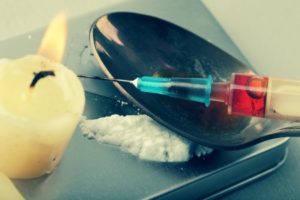 The grand jury indicted defendant and charged him with third-degree possession of Schedule I CDS. Defendant moved to dismiss the indictment, arguing that the OPA protected him. The State contended that defendant’s condition was not within the scope of a “drug overdose” set forth in N.J.S.A. 24:6J-3. The trial court rejected that argument and granted defendant’s motion to dismiss the indictment.
The grand jury indicted defendant and charged him with third-degree possession of Schedule I CDS. Defendant moved to dismiss the indictment, arguing that the OPA protected him. The State contended that defendant’s condition was not within the scope of a “drug overdose” set forth in N.J.S.A. 24:6J-3. The trial court rejected that argument and granted defendant’s motion to dismiss the indictment.
In a detailed written opinion dated August 17, 2017, the trial court construed the applicable provisions of the OPA. The court found that under the broad statutory definition of “drug overdose,” defendant was entitled to immunity.
We generally agree with the trial court’s scholarly analysis of the OPA. However, we are not confident that the sparse record is adequate to resolve the parties’ fact-laden dispute concerning the applicability of the OPA immunity in this case.
Among other things, the record is unclear or inconclusive concerning the details of such aspects as: (1) the supposed hearsay report of an “intoxicated” person on the floor of the train station; (2) whether any bystanders observed defendant’s condition; (3) how his condition was described by the officer in the full police report; (4) what additional observations the officer made concerning defendant’s actual condition, if any; (5) whether defendant exhibited any signs of acute physical illness; and (6) exactly why the officer called for EMT assistance and particularly whether his call was prompted by routine standard police protocols rather than an individualized assessment that defendant’s condition was “acute” and “required” medical assistance. These topics, and any others of relevance, should be explored at a full evidentiary hearing.
It seems inconsistent with judicial economy and the reasonable expenditure of law enforcement resources for the state to contest a full evidentiary hearing. Given the broad scope of the Overdose Protection Act discussed above, a reasonable prosecutor would dismiss this case, especially if the defendant has taken positive steps to address his drug problem.
